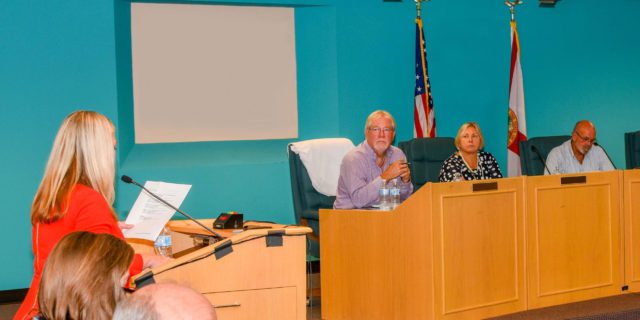What are code enforcement disputes?
Generally, code enforcement is the process of ensuring compliance with land use and zoning laws. The code enforcement process is typically initiated with an application for a permit to construct or remodel a building, and the code official is responsible for processing the applications and issuing permits for the construction or modification of buildings in accordance with the code.
Thus, code enforcement disputes typically arise when a property owner does not comply with the local code. Such disputes involve disagreements between property owners and governments over compliance with local codes and regulations. These disputes may arise over building code violations, zoning violations, or violations of health and safety codes. If a code enforcement officer determines that a property does not comply with the code, a notice of violation is issued to the owner. Further, fines or other enforcement actions may be imposed if the owner fails to comply.
Need help with a matter related to code enforcement disputes? Schedule your consultation today with a top land use and zoning attorney.
In Florida, which laws and regulations relate to code enforcement disputes?
In Florida, the laws and regulations related to code enforcement disputes are governed primarily by state statutes. Generally, Chapter 162 of Florida Statutes governs code enforcement disputes. Some notable sections include:
- Stat. § 162.21 outlines code enforcement officers’ powers, including issuing citations and beginning an investigation. It also requires that the officer provides notice to the person before issuing a code violation citation and gives them a reasonable amount of time to correct the issue.
- Stat. § 162.06 contains additional requirements for code enforcement, including how to deal with repeat violations.
- Stat. § 162.07 outlines the requirements for the hearing about any disagreements related to code enforcement.
- Stat. § 162.11 provides that an aggrieved party can appeal a final administrative order of an enforcement board to the circuit court.
In addition to state laws and regulations, local government ordinances may establish additional requirements for variances, particular use, and other discretionary permits within their jurisdictions. These ordinances may cover zoning, land use, and development standards.
What are common issues that lead to code enforcement disputes and resultant litigation?
Common issues regarding code enforcement disputes that lead to litigation may include:
- Violations of Building Codes and Zoning Laws: Building code and zoning violations can lead to disputes between property owners and the local government, particularly if the government seeks to enforce the regulations through penalties or fines.
- Property Maintenance Issues: Disputes may arise over overgrown vegetation, peeling paint, and other issues that violate local property maintenance codes.
- Occupancy Issues: Disputes may arise over occupancy issues such as overcrowding or illegal dwelling units.
- Land Use and Development Issues: Disputes may arise over issues such as approving or denying building permits, variances, or other land use approvals.
- Lack of Notice: Under Florida law, notice is required in most circumstances for code violations. If notice is not given, a dispute could potentially arise.
- Lack of Cure Period: Under Florida law, a cure period is required in most circumstances for code violations. If this cure period is not given, a dispute could potentially arise.
We are value-based attorneys at Jimerson Birr, which means we look at each action with our clients from the point of view of costs and benefits while reducing liability. Then, based on our client’s objectives, we chart a path forward to seek appropriate remedies.
To determine whether your unique situation may necessitate litigation, please contact our office to set up your initial consultation.
What are effective measures to minimize disputes over code enforcement that could lead to litigation?
To minimize the risk of litigation over code enforcement disputes, the following measures can be effective:
- Clear and Consistent Communication: Clear and consistent communication between property owners and local government officials can help prevent misunderstandings and disputes. Governments can provide clear guidelines and instructions for compliance with local codes, and property owners can ask for clarification if they are uncertain about any requirements.
- Early Intervention and Informal Resolution: Early intervention by local government officials to address potential code violations can prevent disputes from escalating into costly litigation. Informal resolution mechanisms, such as mediation or conciliation, can also help resolve conflicts before they escalate.
- Education and Outreach: Education and outreach programs can help inform property owners of local codes and regulations and how to comply with them. Local governments can hold workshops and seminars and distribute educational materials to promote awareness and understanding of local codes.
- Fair and Consistent Enforcement: Local government officials should enforce codes fairly and consistently to prevent selective enforcement or discrimination claims. They should also ensure that enforcement actions are based on objective evidence and do not violate property owners’ rights.
- Engage with the Community: Engaging with the community and local stakeholders early in the development process can be helpful. This can help to build support for the project and address concerns before they become legal challenges.
- Consider Alternative Solutions: If an action is likely to cause problems with the code, developers and property owners should consider alternative solutions that may be more acceptable to the community or local government.
Frequently Asked Questions
What should property owners do if they receive a notice of a violation?
Property owners who receive a notice of violation should promptly review the notice and take steps to address the alleged infringement. This may involve repairing or modifying the property to comply with local codes and regulations. Property owners may also want to seek legal advice to understand their rights and obligations in the situation.
Can code enforcement disputes be resolved without going to court?
Yes, code enforcement disputes can often be resolved through informal resolution mechanisms, such as mediation or conciliation. These methods can help parties reach a mutually agreeable resolution without costly and time-consuming litigation.
What are the potential consequences of code enforcement violations?
The potential consequences of code enforcement violations can vary depending on the nature and severity of the violation and the local codes and regulations involved. Consequences may include fines, penalties, injunctions, or other legal actions to enforce compliance. In some cases, property owners may also face liability for damages resulting from the violation.
Have more questions about a code enforcement-related situation?
Crucially, this overview of code enforcement disputes does not begin to cover all the laws implicated by this issue or the factors that may compel the application of such laws. Every case is unique, and the laws can produce different outcomes depending on the individual circumstances.
Jimerson Birr attorneys guide our clients to help make informed decisions while ensuring their rights are respected and protected. Our lawyers are highly trained and experienced in the nuances of the law, so they can accurately interpret statutes and case law and holistically prepare individuals or companies for their legal endeavors. Through this intense personal investment and advocacy, our lawyers will help resolve the issue’s complicated legal problems efficiently and effectively.
Having a Jimerson Birr attorney on your side means securing a team of seasoned, multi-dimensional, cross-functional legal professionals. Whether it is a transaction, an operational issue, a regulatory challenge, or a contested legal predicament that may require court intervention, we remain a tireless advocate every step of the way. Being a value-added law firm means putting the client at the forefront of everything we do. We use our experience to help our clients navigate even the most complex problems and come out the other side triumphant.
If you want to understand your case, the merits of your claim or defense, potential monetary awards, or the amount of exposure you face, you should speak with a qualified Jimerson Birr lawyer. Our experienced team of attorneys is here to help. Call Jimerson Birr at (904) 389-0050 or use the contact form to set up a consultation.
Here are some blogs written by JB attorneys that provide more information about variances, special use, and other discretionary permits:

We live by our 7 Superior Service Commitments
- Conferring Client-Defined Value
- Efficient and Cost-Effective
- Accessibility
- Delivering an Experience While Delivering Results
- Meaningful and Enduring Partnership
- Exceptional Communication Based Upon Listening
- Accountability to Goals









